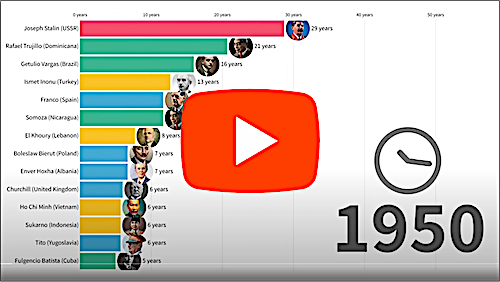Client Alert – July 2024

We are pleased to supply you with the latest edition of Client Alert, which contains information on a number of important developments up to and including 24 June 2024.
Tax time scams: be on guard – Using unsolicited contact via SMS, email or on social media, ATO impersonators frequently offer refunds or assistance in resolving tax issues or suggest suspicious activity on a taxpayer’s account.
Tax time 2024: claiming working from home expenses – Claiming work-related expenses is an area where taxpayers frequently make mistakes, and the ATO has flagged it a primary area of focus for tax time 2024.
ATO focuses on rental property owners’ tax returns – ATO data shows the majority of rental property owners are continuing to get information in their income tax returns wrong, even with most using a registered tax agent to complete their tax returns.
Tax time reminders for small businesses from the ATO – The ATO has reminded small businesses of a number of areas they should be thinking about in the lead-up to preparing their tax return.
Scam alert: fake ASIC branding on social media – ASIC reminds consumers that it does not endorse or promote investment training or platforms, doesn’t cold call consumers, and is not associated with any investment offerings.
R & D Grants – Clients undertaking Research & Development projects should contact the office as there may be government grants available.
Confused about Aged Care? – Please contact Guests as we are able to advise and liaise with Aged Care Specialists.
Single Touch Payroll, it’s time to get ready – From 1 July 2018, if you have 20 or more employees, you need to use Single Touch Payroll enabled software to report your tax and super information to the ATO. Please contact us if you need help.
Audit Insurance – Whilst historically, Tax Audits were targeted at big business and the wealthy, this has changed. Increasingly the ATO are turning their attention to both small to medium businesses and individuals.
Audit Insurance protects you to a degree from the unexpected costs incurred in responding to an audit, reimbursing you for related professional fees and associated with these costs.
Should you wish to discuss Audit Insurance further please contact our office or your Insurance Broker.
Acquisition of property in trusts – If you are contemplating purchasing a property in a trust, please contact your Partner at Guests for advice prior to acquisition. Feel free to contact our office anytime by phone or email – to discuss any of the points raised in this Client Alert that may affect you.
Despite preventative approaches by the ATO and the National Anti-Scam Centre (NASC) to take down fraudulent websites and block scam text messages, ATO impersonation scams are on the rise as tax time approaches. Using unsolicited contact via SMS, email or on social media, ATO impersonators frequently offer refunds or assistance in resolving tax issues or suggest suspicious activity on a taxpayer’s account. The ATO recommends not engaging with unsolicited contact and instead looking up the ATO’s contact numbers to verify the genuine nature of the communication.
The creation of NASC, funding for the Australian Securities and Investments Commission (ASIC) and the Australian Communications and Media Authority (ACMA) to take down fake investment websites, and establishing the SMS Sender ID register to stop scammers from spoofing trusted brand names have already had some success: over 5,000 website takedowns occurred and 100 million scam text messages were blocked in the final quarter of 2023. However, the lead-up to tax time still poses a risk – updated figures for May 2024 show a 31% increase in reports of ATO impersonation scams across SMS, email, phone contact and social media channels.
The ATO is working on preventative measures to help the community to recognise legitimate ATO SMS interactions, including removing hyperlinks from all its outbound unsolicited SMSs. Cybercriminals often use hyperlinks in SMS phishing scams, directing individuals to highly sophisticated websites – for example a fake myGov login page – in order to steal personal information or install malware.
The ATO has a dedicated team to monitor for scams and to assist taxpayers who have fallen prey to scammers, and provides detailed information about email and SMS scams, phone scams and social media scams on the ATO website. The ATO also offers a reporting service where people can report an ATO impersonation scam if they encounter one.
Tax time 2024: claiming working from home expenses
Claiming work-related expenses is an area where taxpayers frequently make mistakes, and the ATO has flagged it a primary area of focus for tax time 2024. More than eight million taxpayers claimed a work-related deduction in 2023, with around half of those claiming a deduction related to working from home costs, so it’s clear that understanding the methods for calculating working from home deductions is important to help taxpayers avoid incorrect claims and get their lodgment right the first time.
“Copying and pasting your working from home claim from last year may be tempting, but this will likely mean we will be contacting you for a ‘please explain’”, ATO Assistant Commissioner Rob Thomson has said. “Your deductions will be disallowed if you’re not eligible or you don’t keep the right records.”
There are two methods for calculating work from home expenses: the actual cost method and the fixed rate method. Both methods require keeping detailed records and following the ATO’s three golden rules: the money must have been spent by the taxpayer without reimbursement, the expense must be directly related to earning their income, and the taxpayer must have a record to prove the expense. The two methods can’t be used in combination – you need to pick one or the other each year – so it’s important to consider which method will best suit your individual circumstances.
To be eligible to claim working from home expenses by either method, when working from home you must be fulfilling employment duties (not just minimal tasks like taking calls or checking emails); incur additional running expenses as a result of working from home (e.g. increased electricity or gas costs for heating/cooling or lighting); and keep detailed records showing how these expenses were incurred.
ATO focuses on rental property owners’ tax returns
Tax time 2024 sees the ATO continuing to turn the spotlight on rental property owners and inflated claims to offset increases in rental income. ATO data shows the majority of rental property owners are continuing to get information in their income tax returns wrong, even with most using a registered tax agent to complete their tax returns. The most common mistakes include overclaimed deductions; inadequate documentation to substantiate claimed expenses; and not understanding what expenses can be claimed and when.
To determine the accuracy of tax returns, the ATO cross-checks data from a range of sources including banks, land title offices, insurance companies, property managers and sharing economy providers. Incomplete documentation and the inability to substantiate claims for expenses and deduction are major causes of errors. Rental property owners need to make sure that they are keeping accurate records and are letting their tax agent (where they have one) know what is going on with their rental property so their return can be prepared correctly.
Not understanding what expenses can be claimed and when, particularly the difference between what can be claimed for repairs or maintenance versus capital expenditure, is the most common mistake rental property owners make on their returns. Deductions can generally only be claimed only to the extent that they are incurred in producing income – which means costs incurred in generating their rental income annually may be claimed for that period.
Tax time reminders for small businesses from the ATO
The ATO is encouraging small business owners to prepare for their 2024 tax return lodgment by considering the following:
- Purchase and keep records of tax-deductible items: The end of the financial year on 30 June represents the last chance to purchase any tax-deductible items that the business intends to claim for 2023–2024. Ensure that any tax-deductible items are documented both for cost and usage, including apportionment for work and private use where relevant.
- Check small business concessions: Small businesses may be able to access a range of concessions based on their aggregated turnover – this applies to sole traders, partnerships, companies and trusts – including CGT concessions, the small business income tax offset or the small business restructure roll-over.
- Finalise STP records: The ATO reminds small businesses with employees that the 2023–2024 STP information must be finalised by 14 July. This important end-of-year obligation ensures that employees have the correct information required to lodge their income tax return. STP information for all employees paid in the financial year, even terminated employees, must be finalised.
- Check your PAYG withholding and instalments: From 1 July, individual rates and thresholds will change and will impact PAYG withholding for the 2025 financial year. Check that the correct PAYG withholding tax tables are being used and that software has updated to the new withholding rates from 1 July. If PAYG instalments could result in paying too little or too much tax, instalments may be varied.
- Review record-keeping: Looking toward the next financial year, small businesses should review their record-keeping from the past year and see if anything needs to be done differently in the future.
Scam alert: fake ASIC branding on social media
The Australian Securities and Investments Commission (ASIC) has issued a scam alert warning consumers that there has been an increase in the use of ASIC’s logo in social media scams promoting fake investments and stock market trading courses; cold calling scams; and impersonation accounts on Telegram. ASIC is working with the National Anti-Scam Centre (NASC) and social media platforms to remove such content and reminds consumers that it does not endorse or promote investment training or platforms, doesn’t cold call consumers, and is not associated with any investment offerings.
ASIC’s warning to consumers covers three main areas of concern.
- Advertisements on social media platforms: ASIC has received reports of ads on social media platforms displaying the ASIC logo and claiming ASIC sponsorship for a “Stock Trading Master Class”. The ads link to a private WhatsApp group called “Lonton Wealth Management Center” – an entity listed by ASIC on the Investor Alert List in May 2024. ASIC is not associated with the entity, and ASIC does not sponsor the class.
- Cold calling: Repeated cold calls from someone purporting to be from ASIC have been reported. The caller tries to engage with consumers about obtaining a refund on an investment. ASIC does not cold call consumers about investments.
- Fake Telegram account: An account on Telegram is impersonating an ASIC social media account, with the operators asking investors for money to release their investment funds held in Australia. ASIC does not have a Telegram account as part of its social media presence and will never ask consumers for upfront payments or taxes to release Australian-held investments.








































